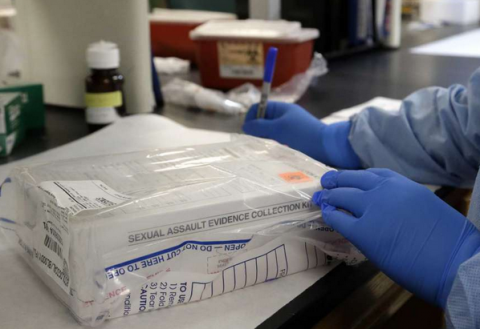Standardizing the rape kits would reduce the chance of contamination and make for a faster and more efficient process, she said.
Enter Article DATE HERE
All rape kits are not created equal.
There are multiple vendors. Some law enforcement agencies buy them off the shelf. Some of the larger departments have manufacturers customize them for their specific needs.
Nancy Downing, an associate professor at the Texas A&M College of Nursing and one of the newest members to the Texas Forensic Science Commission is pushing to standardize rape kits in Texas. Appointed to the commission in November by Gov. Greg Abbott, she is concerned about the way the evidence from the sexual assault kits are being handled at different crime labs.
“Crime labs have their own favored analysis and their favorite process and even the nurses have disagreement about which types of evidence to collect,” Downing told Austin television KXAN.
Standardizing the rape kits would reduce the chance of contamination and make for a faster and more efficient process, she said.
Up until 2013, rape victims in rural areas had to drive hours to reach an emergency room that had a staff trained in basic forensic evidence collection. A state law requires all emergency rooms to have someone available to collect evidence when there is a sexual assault.
DNA evidence is an invaluable law enforcement tool. While all emergency rooms must have medical personnel on staff to collect rape kit evidence, the level of training of those individuals varies and that alone is reason enough to adopt a standardized rape kit for use across the state.
Many of the rape kits off the shelf include vials for blood, envelopes for hair samples and evidence containers that can be huge.
In Bexar County, the rape kits have been modified so they don’t take up so much storage space. They also don’t include envelopes for hair samples or vials for blood because broken vials can contaminate other evidence and hair samples can be collected later if needed.
Collecting and testing of rape kits is not cheap; it can run $500 to $1,000. The state has spent almost $11 million in the last decade tackling a backlog of 10,500 untested rape kits. As of November there were 4,167 untested rape kits and the state is considering appropriating another $4.2 million to address the problem.
It is encouraging to see the forensic commission looking to improve on the process for the collection of that valuable evidence.


